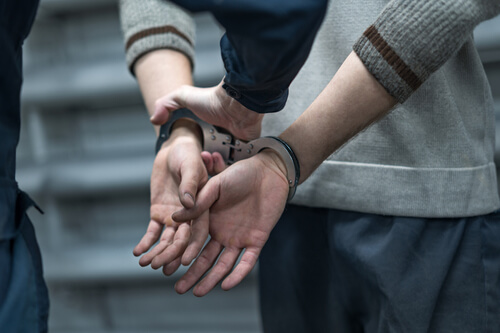
Dallas, TX
Apple recently announced that new software it will release later this year will scan users iCloud Photos for sexually explicit images of minors and report these images to appropriate authorities.
The update will scan iPhones and iPads for known child sexual abuse material (CSAM) from a database compiled by the National Center for Missing and Exploited Children (NCMEC).
According to Apple, the update will use NeuralHash technology to analyse images from the database and turn them into a long string of numbers called a hashkey. The hashkey is then used in cryptography to find matching images. According to Apple, this will prevent the technology from learning anything about images that do not match known CSAM on the NCMEC database.
Apple’s statement on the future update said (1):
“iOS and iPadOS will use new applications of cryptography to help limit the spread of CSAM online, while designing for user privacy. CSAM detection will help Apple provide valuable information to law enforcement on collections of CSAM in iCloud Photos.”
How Does the Apple CSAM Scanning Update Affect Privacy?
Mick Mickelsen, a leading Dallas criminal defense lawyer with decades of experience working on sex crimes cases, explains the serious implications Apple’s decision may have on privacy rights in the United States.
“Apple’s decision touches on one of the biggest issues in US law right now. For decades the Supreme Court has considered material held by private third parties not to invoke the protections afforded by the bill of rights against unwarranted government intrusion.
“For example, if the government wants to search one’s home and computers to learn about one’s financial activity the government has to go to a judge (in secret), persuade the judge that the government has evidence that a crime has probably been committed, and get a judicially issued warrant to conduct that search. However, the government is able to subpoena a bank, without showing any evidence, and demand that the bank produce all of a person’s financial records.
“The distinction in theory is that one surrendered their right of privacy to the bank when one decided to use the bank in a manner similar to the way one gives up their right to privacy when they throw their financial records in the trash, enabling the government to search one’s trash without warrant.
“When Twitter banned President Trump, many people mistakenly believed this was an infringement of his First Amendment rights. However, the First Amendment only protects people from undue infringement of speech by the government. Because Twitter is not a governmental organization it was free to ban whoever it pleases. However, given the enormous amount of information we surrender to third parties such as Apple, or the outsized role Twitter and Facebook play in terms or speech, one wonders whether the Courts should extend the protections afforded in the bill of rights to these entities.
“My guess is the courts will not do this in the foreseeable future. After all, we also surrender lots of information to our banks and the courts have been ok with this for decades. In addition it is also difficult to know where the line will be drawn. Perhaps it would be easy to say Apple, Facebook, and Twitter are so large they function as quasi-governmental agencies to which the bill of rights is extended, but where would the line be drawn?”
About Criminal Defense Attorneys Broden & Mickelsen, LLP
Experienced criminal defense lawyers in Dallas, Broden & Mickelsen, LLP are dedicated to providing aggressive and ethical representation to individuals and businesses charged with criminal offenses. Both partners play an active role in each case, and are committed to the belief that when a person is charged with a crime, he or she deserves to be represented by attorneys that provide a vigorous defense. By evaluating each case individually and by using all the resources available to achieve a favorable resolution. Read more about selecting an attorney, or schedule a consultation for your case.
Sources:
